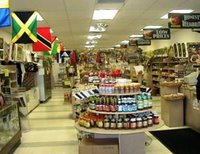|
Developing Accountable Caribbean Executives
“My dog is probably outside playing with your dog, right now”
Caribbean saying.
There is not a company we have worked with in the region that has not complained about its lack of bench strength i.e. the lack of qualified managers waiting in the wings to be promoted. Leaders
lament the small number of future executives who are ready and willing to take over new and important areas of responsibility.
Indeed, our research in the Caribbean Acquisition Project showed that companies took advantage of available acquisition opportunities, knowing full well that they would have a problem finding leadership for the new company from within their ranks. In many cases, the barrier to undertaking further acquisitions is not a lack of capital, or a lack of raw talent, but a critical capacity or skill that is missing.
While there are many managers with the necessary technical
qualifications, they lack a certain profound ownership of their
own performance, let alone the performance of the company. This prevents them from being able to step up to higher positions in which they are asked to produce difficult results under trying circumstances, without anyone being able to tell them what to do. For example, companies need executives that can be sent to save a division that is in trouble, or has just been merged, or is operating in a foreign country.
Instead, they have managers who are more interested in staying out of trouble, doing the minimum, not being taken advantage of, and caring only that their personal results are good enough for the next raise. They give excuses, manufacture explanations and create reasons for poor performance, when what is really needed is solid leadership that is willing to own negative and positive results alike.
They are not bad employees, but a key ingredient is missing that gives others the confidence that they can lift their concerns above a personal level, and to a corporate level.
In short, there is a level above which they cannot be trusted to be accountable.
A Lack of Accountability
Accountability can be defined as a willingness to own a result, along with ALL of its consequences, long before the result is known i.e. “before the fact.” When accountability is defined this way, regional executives often agree that it is missing. Furthermore, when they look beyond their direct reports, they frequently see a problem that affects every employee in the organization. A 1982 study by Jamaican Carl Stone showed that the average worker puts out only 67% of his/her total effort on the job. In the 1997 book “Why Workers Won’t Work” (in Jamaica) by Kenneth Carter, some 65% of workers surveyed considered their jobs to be unimportant to the overall goals of the organization.
And executives do not know what to do about this.
While they are vehement that they want the culture to change, they are unable to see the part they play in keeping the Caribbean work-place the way it has always been. To intervene effectively, executives and managers need to
a) understand Caribbean Workplace history
b) see the Basic Unit: a manager-worker relationship
c) implement Missing Skills at every level
a) The Caribbean Work-Place — Stunted at Birth
What many executives do not fully comprehend is the hundreds of years of hostile worker-manager relationships they have inherited.
A great deal could be said about the effects of slavery,
indentureship and colonialism, and there is truth to the claim
that workplaces in the region, and employees in particular, were deliberately stunted by the first European managers.
Under duress, our ancestors were brought to the region to be put to work, in most cases, enslaved. Work killed off the
aboriginal Arawaks and Caribs. The workplace was designed as a battleground, defined by obvious winners and losers.
Perhaps as a result, today’s Caribbean workplace shows less of the ownership and accountability required of modern corporations, and more of the resentment, anger and just plain “bad mind” that one would associate with hostilities.
It is against this background that the modern Caribbean manager must operate.
b) The Basic Unit — Where Change Starts
Arguably, the basic unit that must be transformed in the workplace is the relationship between manager and direct report. This relationship functions well when communication between the two players is populated with numerous feedback conversations. In its highest form, this basic unit evolves into a coaching relationship. Without these conversations, performance cannot be addressed, breakdowns cannot be resolved, and empowerment is impossible.
The modern Caribbean manager has inherited a work-culture that is marked by behaviours drawn from historical extremes on the one hand, and known everyday relationships on the other.
c) Missing Skills
We found that today’s Caribbean manager compensates for the historical extreme by first feeling-too-much, and then by
feeling-too-little.
From a wife managing a domestic helper, to a vice-president
managing a branch’s employees, the relationships between manager and worker swung on a pendulum from a “too-nice softness,” to a “too-harsh wickedness,” and back again.
Our research and experience tell us that the critical executive
skill that would help to create accountability in managers is an
ability to give clear, empowering feedback, in a Caribbean style. While a North American or European manager can give blunt feedback and fire people at will, relying on the fact that they will never see the person again, the Caribbean executive has no such luxury.
In our context, it is critical to maintain relationships while
simultaneously giving feedback on results. After all, as one
client put it: “my dog is out there playing with your dog,”
indicating that outside of our work relationship, there are
probably many other ways in which we are interconnected, and in which our lives are intertwined.
These inter-related relationships are not a fault, but a strength. They are to be built on and acknowledged, rather than ignored (as many US/European programmes would encourage.) Doing this effectively, however, does not come naturally. It takes focused training and practice for most executives-in-training, and their development can only be accelerated when they are able to foster accountable reporting relationships around them.
In recent feedback training we delivered, when we observed
managers skillfully holding their reports to account for results,
the conversations appeared to be magical. They were able to call forth accountability while simultaneously maintaining the quality of the relationship. The person receiving the feedback was honoured and respected as a fellow professional. Our most recent research shows that “honour” and “respect” are critical elements in the highest performing workplaces across the region.
However, executives that are unskilled at holding employees to account fail to practice effective feedback conversations, and are unable to create workplaces of accountability. In so doing, they help to perpetuate the historical dysfunction that, without their intervention, is merely be passed on to future generations. They need to understand the history they are inheriting and the role that they can plan in reversing it. Their skills are critical to the Caribbean region’s success.
*
To discuss these issues, and discover how in our training sessions in feedback skills, we found that:
* Trinidadians tried to become your friend
* Jamaicans tried to become your headmaster/headmistress
* Barbadians tried to become your preacher
go to our blog from the following link to share your comments:- http://tinyurl.com/nuweq and we will respond.
*
In an upcoming issue of FirstCuts: How to use the principles of video-based training to develop feedback skills of managers and executives.
Useful Stuff
Tips, Ads and Links
To receive our white paper “The Accountability Challenge” send email to fwc-accountability@aweber.com.
For other related entries in our blog (Chronicles from a Caribbean Cubicle) that you can read and comment on, see:
Management via Critical Confrontations:- http://tinyurl.com/k2zc9
The Employee Who Cannot Be Fired:- http://tinyurl.com/z5l5c
The Space of Accountabilty:- http://tinyurl.com/zv5mh
Un-confronts:- http://tinyurl.com/j3l7b
Current Research Update: Study of Trinidadian Executives Working in Jamaica. We are in the process of conducting interviews and are looking forward to sharing the findings in the next 4-8 weeks.
To manage this newsletter, we use an excellent programme called AWeber that you can explore here:- http://www.aweber.com/?213577
General and Newsletter Subscription Info
To contact us with feedback, questions or praise, email newsletter@fwconsulting.com
To subscribe, please email firstcuts@aweber.com from the email address that you which to be subscribed from
Please feel free to use excerpts from this newsletter as long as you give credit with a link to our page: www.fwconsulting.com
FirstCuts © Copyright 2006, Framework Consulting, except where indicated otherwise. All rights reserved worldwide. Reprint only with permission from copyright holder(s). All trademarks are property of their respective owners. All contents provided as is. No express or implied income claims made herein. Your business success is dependent on many factors, including your own abilities. Advertisers are solely responsible for ad content. |
 It is an idea whose time has come.
It is an idea whose time has come.

 See the 2 prior blog entries for the prelude to this blog.
See the 2 prior blog entries for the prelude to this blog.





